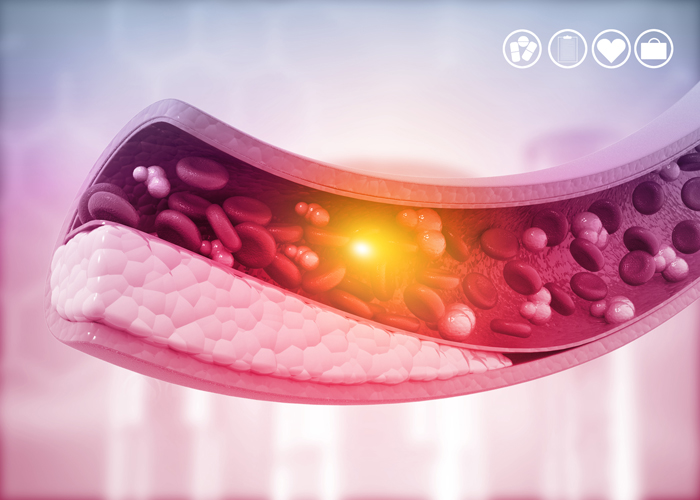Treatment for Thrombosis in Koramangala, Bangalore
Deep vein occlusion is a severe condition in which a blood vessel is blocked. It usually happens due to a blood clot. When blood turns to solid-state, it is known as a blood clot. However, blockage of any other form is also considered an occlusion. If it occurs in one of the major veins, it can cause deep vein thrombosis (DVT).
What is deep vein occlusion?
When any of your blood vessels are blocked, usually due to a clot, it is called deep vein occlusion. In some cases, this can lead to deep vein thrombosis. It occurs when there is a clot formed in your blood vessel, typically in your lower leg or thigh. It can also affect the veins in your pelvis.
It is a serious condition because the clot in your vein can break loose(embolus). It can travel through the bloodstream and get stuck in any of your vital organs like the lungs, making it more deadly.

What are its symptoms?
Symptoms of this occur or are noticeable in only half of the population suffering from DVT. Some of the common symptoms include:
- Severe pain in the affected region, which usually begins in the calf and can feel like cramping and sore
- Swelling in your leg, ankle or foot
- The skin in the affected area turning red or occurring of discolouration
- The affected area is warmer than the rest of the surrounding skin
However, DVT can also occur without any noticeable symptoms.
What are the causes of deep vein thrombosis?
There is no clear cause of an individual suffering from DVT, except for a blood clot. Clotting prevents blood from adequately circulating in your body. Possible causes of a blood clot are:
- Injury or surgery: Damage to any vein due to an injury or surgery can reduce the blood flow, which increases the chances of a blood clot. Veins become wider due to general anaesthetics, which may cause the blood to pool, and clots may occur.
- Inactivity: If your body is inactive for a prolonged period, it may cause the blood to pool in your lower limbs and pelvic area. This causes the blood flow to slow down, as a result of which blood clots can form.
- Pregnancy: During pregnancy, due to the fetus’ weight, pressure against the pelvic veins or veins in the legs increases. This increases the risk of clot formation. Pregnant women are at risk of DVT for up to six weeks after the delivery.
- Heart problems: An individual with any heart condition like a heart attack or congestive heart failure that affects the blood flow to and from the blood is at risk of suffering from DVT.
When to see a doctor?
If you notice any of the following symptoms, book an appointment with your doctor.
Request an appointment at Apollo Hospitals
Call 1860-500-1066 to book an appointment
Treatment of DVT
The treatment aims to:
- Stop the growth of the clot
- Prevent it from turning into an embolus
- Reduce the risk of recurrence of DVT
- Reduce the risk of other complications
Following are some of the ways to treat DVT.
- Anticoagulant medicines: These medicines make your blood thinner and prevent the clotting of blood. Its types are Heparin and Warfarin.As Heparin shows the immediate effect, doctors administer it through a brief course of injections and then the doctor prescribes a 3-6 months long oral course of Warfarin to prevent DVT from recurring.
- Compression Stockings: Wearing compression stockings prevents swelling and reduces the risk of DVT by preventing the formation of clots.If you are at a high risk of DVT, your doctor may recommend you to wear these stockings every day.
- Filter: If you are unable to take anticoagulants, your surgeon will insert a small umbrella-like device into the big abdominal vein called vena cava. This device prevents the clot from moving into the blood and continues blood flow.But they have a risk of actually causing DVT if left in for too long and so are to be used for a short period until the patient can take blood thinners.
- DVT Surgery: Your doctor may suggest you undergo surgery to remove the clot. However, doctors recommend it only in case of huge clots that cause serious issues, like damage to the tissues. But surgery also has many risks. The risks include excessive bleeding, damage to the blood vessel or infection, and hence only use in severe cases.
Conclusion
Deep vein occlusions can lead to a serious condition called deep vein thrombosis. That is why you should take it seriously. Doctors should provide proper treatment so that chances of recurring reduce. If not, it can lead to the death of an individual in some cases.
You can book the appointment by visiting to our website or by calling at 1860 500 2244.
Symptoms
Our Doctors
DR. VINAY NYAPATHI
MBBS, MD (Radiodiagn...
| Experience | : | 27 Yeras Experience |
|---|---|---|
| Speciality | : | Vascular Surgery... | Location | : | Koramangala |
| Timings | : | Wed, Sat : 12:00 AM ... |
DR. VARUN J
MBBS, DNB (Gen Surge...
| Experience | : | 15 Yeras Experience |
|---|---|---|
| Speciality | : | General Surgery /Vas... | Location | : | Koramangala |
| Timings | : | Mon, Fri : 11:00 AM ... |
Our Top Specialities
NOTICE BOARD
CONTACT US
CONTACT US
 Book Appointment
Book Appointment




.svg)
.svg)
.svg)
.svg)








